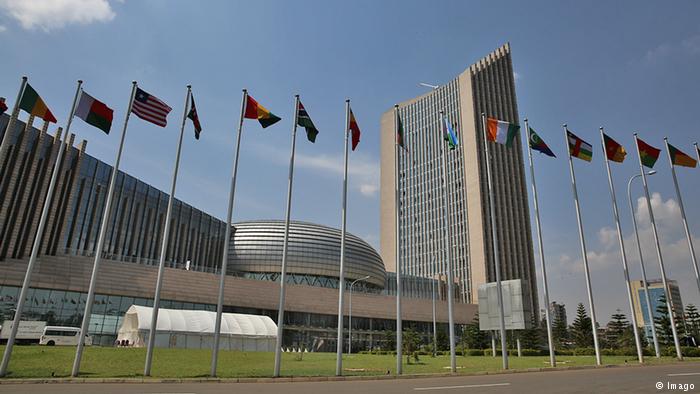China – African Union
January 30, 2018 | Expert Insights

On the 26th of January, the prominent French newspaper Le Monde published an expose alleging that China bugged the African Union headquarters it built in Addis Ababa in 2012 until the bugs were discovered a year ago.
Three days later, Beijing officials spoke out to dismiss these claims.
Background
The African Union is an intergovernmental organization comprising of all 55 African nations of the African continent. Established through the Sirte Declaration of 1999, the organisation’s vision is “An integrated, prosperous and peaceful Africa, driven by its own citizens and representing a dynamic force in global arena.”
Sino- African relations hugely predate the existence of this union, there is evidence of trade dating as far back as the Song dynasty. Relations between the two countries however, have begun to boom in the past two decades: Trade has grown from 10 billion USD in 2000 to 220 billion USD in 2014. Beijing has been the continent’s largest trade partner since they surpassed the United States in 2009. As of 2017, total trade value stood at just under 150 billion USD. The African continent is a source for raw materials for China, and China is a huge investor in infrastructural (rail and road), and mining projects in Africa.
Despite these considerable ties, one of the key principles of these relations is China’s policy of non-interference in the politics of the continent; this stance has received critique from the west for failure to promote human rights.
Analysis
The African Union’s headquarters, the African Union Conference Center and Office Complex (AUCC), located in Addis Ababa, Ethiopia, cost USD 200 million and was funded entirely by the Chinese Government. The building was constructed by the China State Construction Engineering Corporation (CSCEC) and inaugurated in 2012.
Senior Chinese political advisor Jia Quinglin, at the opening of the headquarters, stated: "The towering complex speaks volumes about our friendship to the African people, and testifies to our strong resolve to support African development.”
In a report published on Friday (Jan 26th), French newspaper Le Monde alleged that China had been spying on the AUCC for five years since the headquarters’ completion in January 2012.
According to the newspaper, multiples anonymous AU sources claimed that in January 2017 it was discovered that data from the building was being transferred to servers in Shanghai. The leak was discovered due to an unusual peak in activity every night. The building was swept for bugs and hidden microphones were discovered in desks.
Le Monde claims that since the discovery, servers and IT systems have been changed, and information is now encrypted. According to the Financial Times, CSCEC, the company that constructed the headquarters, couldn’t be reached for comment.
Leaders from both sides who were present for the 30th annual AU summit denied the report. "I think the report is not only a sensationalist story, but also preposterous and absurd,” stated Kuang Weilin, Chinese ambassador to the AU. He questioned the intentions of the newspaper, implying that the report was meant to put a strain on relations.
The newly appointed chairman of the AU, Rwandan President Paul Kagame, denied knowledge of the contents of the Le Monde report. “I don’t think spying is the specialty of the Chinese. We have spies all over the place in this world,” he said. “But I will not have been worried about being spied on in this building.” However, members of civil society have expressed displeasure at this news.
Assessment
Our assessment is that the Le Monde article on what is considered to be a symbol of China’s influence in Africa will have an impact on perceptions of Sino-African ties, globally and within the continent. We believe that this will impact the west’s already poor trust in Beijing, and also serve as a reminder of China’s growing influence in the region. It is yet to be seen whether the continent with a long history of colonial rule and oppression will use this as an opportunity to question China’s commitment to non-interference in the region. With their response, the AU also makes a decision on whether the promise of aid and infrastructure is worth the risk should Beijing renege on their commitment.








Comments